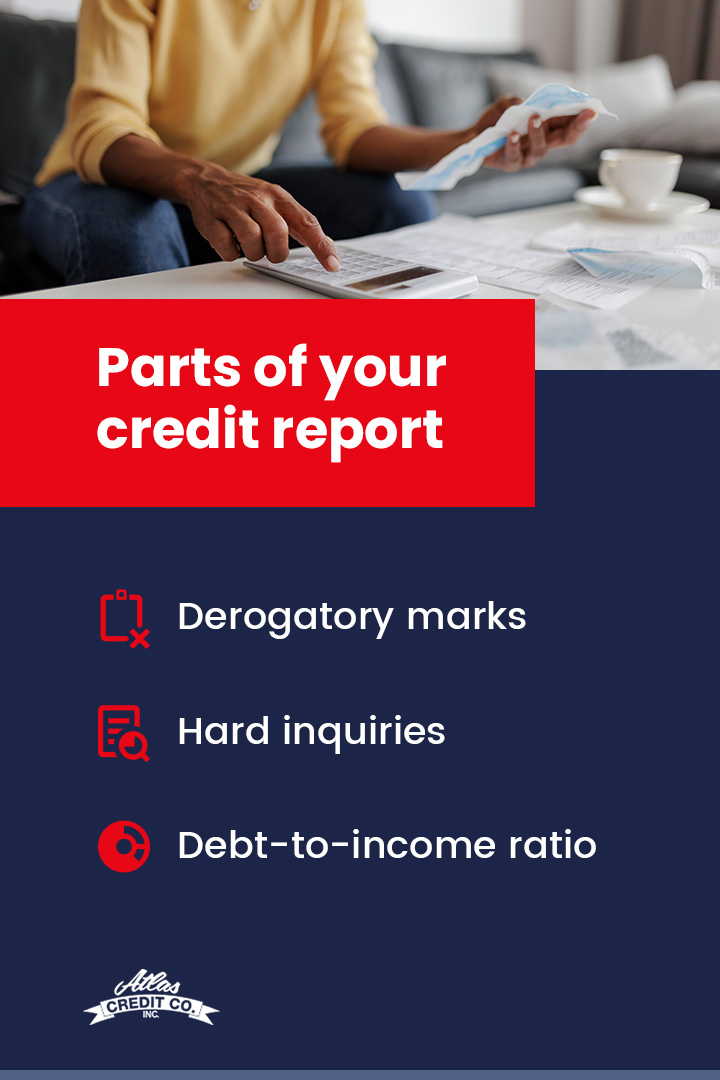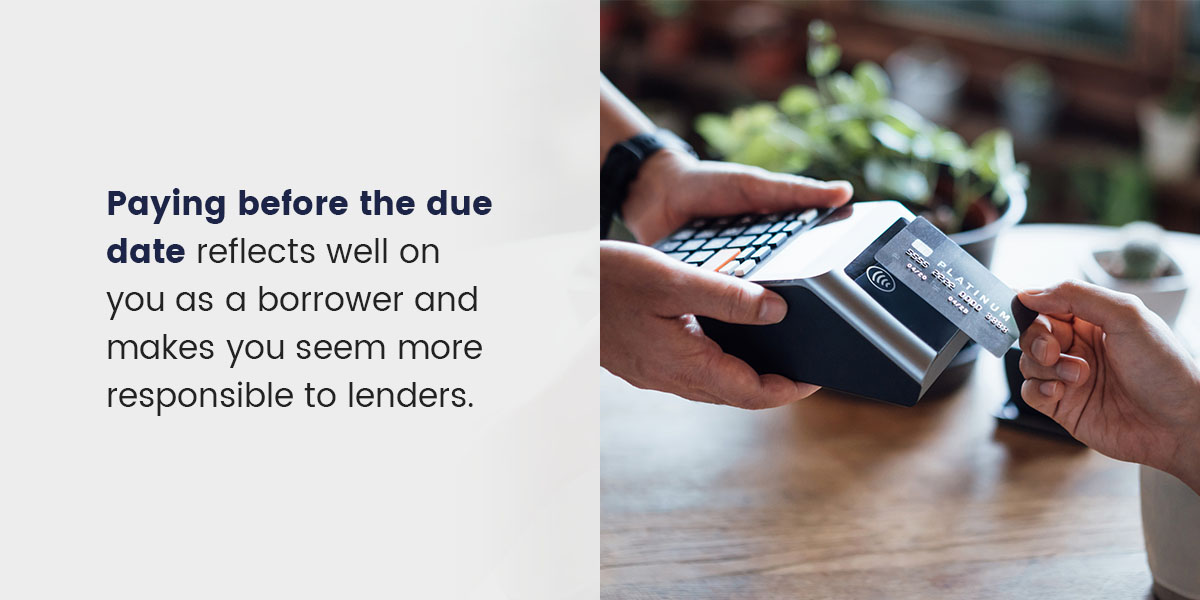
You can use a personal loan for numerous reasons, including financing a large purchase or paying off debt. Personal loans can also cover major expenses, such as a vacation or weddings. You can obtain a personal loan from a lender, but you may wonder if your credit score is high enough for you to qualify.
The good news is that you can still apply for loans with an average credit score and could get approved, depending on other factors. Learn more about fair credit personal loans below and how you can qualify.
What Does It Mean to Have Fair Credit?
Many people have questions concerning credit scores, including what it means to have fair credit. Fair credit means having a credit score between 580 and 669 out of 850. Fair credit is sometimes considered an average credit score, but this only means that people with these scores fall into the middle of possible credit ranges as opposed to the average American having fair credit.
FICO credit scores start at 300 and go to 850, and the average FICO score was 716 in 2021, meaning Americans average good credit scores as opposed to fair. People with good credit scores have more financial opportunities than those in the fair range, but people with fair credit can still qualify for credit cards, mortgages, low-interest rates, and personal loans.
You can use a personal loan for numerous reasons, including financing a large purchase or paying off debt. Personal loans can also cover major expenses, such as a vacation or weddings. You can obtain a personal loan from a lender, but you may wonder if your credit score is high enough for you to qualify.
The good news is that you can still apply for loans with an average credit score and could get approved, depending on other factors. Learn more about fair credit personal loans below and how you can qualify.
Apply For a Personal Loan Online
How to Get a Personal Loan With Fair Credit
Getting personal loans with an OK credit score is more than possible. While having a good or excellent credit rating is better, finding the right lender can help you get your personal loan application approved. When looking through your option, keep an eye on loan terms, including fees, repayment details, and interest rates.
Atlas Credit fair credit score loans are easy to apply for and could be a good option for those with a fair credit score. You can fill out an application in-store or online for your convenience, and it only takes a few minutes. Your application just needs your name, address, contact information, social security number, and the requested loan amount.

Once you've submitted your online application, a customer service representative will contact you to verify your information. Once approved, you can sign the documents online to speed up the loan process.
Atlas Credit loans for fair to poor credit scores have basic requirements. You must:
- Have a verifiable source of income that meets minimum income requirements.
- Be 18 years old with United States citizenship.
- Be able to meet the ability to repay requirements.
To get approved for loans for average credit through Atlas Credit, you can't be in a bankruptcy case or intend to file for bankruptcy relief.
For some applications, you may need to provide third-party information for the verification process, which can include information from your:
- Bank
- Place of employment
- Income details
If your application is approved, you'll receive a loan agreement to review and sign. The agreement will include the terms between you and the lender, including interest and fees. Atlas Credit is excellent for fair credit score loan options and has team members you can contact to answer your questions throughout the process. You have different options to repay your loan, including through the phone, via debit card, or through mailed checks or money orders.
Apply For a Personal Loan Online
Common Document Requirements for a Loan Application When You Have Fair Credit
Before being approved for a personal loan, you must present your lender with specific documents. These documents help prove your financial and personal information. Once you've submitted the loan application, your lender will review the information before deciding whether or not to make a loan offer.
While lenders have different applications and eligibility requirements, they usually require the same documentation. Understanding the types of documents you need can better prepare you for the application process and keep things moving quickly.
Documents you may be required to submit include the following:
- Loan application: Every lender has a unique application to start the personal loan process. For example, online lenders have online applications that are simple to complete. Traditional banks or credit unions often let you choose between in-person or online applications. Loan applications usually ask for personal information like your name, address, and social security number. You may also have to include how much of a loan you're seeking and the loan's purpose. Depending on the lender, you may have to include your gross income or how much you pay for your monthly rent or mortgage.
- Proof of identity: Lenders must verify your identity to prevent identity theft and ensure you're a U.S. citizen or permanent resident at least 18 years old. Most lenders will ask that you provide two forms of identification, including a valid driver's license, birth certificate, citizenship certificate, state-issued ID, passport, military ID, or social security card. You should be able to make copies of the chosen forms of identification, so you don't have to submit the originals to your lenders.

- Employment and income verification: Personal loans differ from other types, such as car loans or mortgages. Personal loans don't require collateral to back the loan, increasing the lender's risk. This factor is why lenders often as for employment and income verification to ensure you have the financial means to repay the loan. Traditionally employed people can usually submit bank statements, pay stubs, tax returns, and employer contact information to prove their income. Self-employed individuals may be limited to bank statements, tax returns, and 1099s.
Common Obstacles for Lenders
Lenders look at your credit profile to determine if they should approve a loan application, but they look at more than just the score. Lenders consider different parts of your credit report to ensure they're not putting themselves at risk by approving a loan, which can become obstacles for loan distribution to borrowers.
Lenders also look at the following:
- Derogatory marks: Having too many derogatory marks on your credit report can make you stand out as a risk to lenders since they show trouble making payments toward debt in the past. Some derogatory marks affecting your credit score include foreclosures, collections, bankruptcies, and tax liens. Major or recent derogatory marks can hurt your odds of receiving a personal loan.
- Hard inquiries: Applying for any new line of credit usually adds a hard inquiry to your credit report. Too many hard inquiries can impact your credit score and bring it down, especially in a short period. These inquiries can lead lenders to believe you're experiencing financial hardship and may not be willing to lend you more money since they may think you can't afford to pay it back. Hard inquiries usually stay on your credit report for several years and are more likely to have a more significant impact if you have less credit history or a lower score.
- Debt-to-income ratio: Your debt-to-income ratio shows how much you own in relation to your income. Ideally, you want your debt-to-income ratio to stay below 36%, meaning you pay less than 36% of your monthly income toward your debt. If your ratio is too high, a lender may automatically rule you out because they believe you're borrowing close to or more than you can reasonably afford and may end up missing payments.
How to Improve Your Credit Score From Fair to Good
If you have a fair credit score, it's essential to focus on improving it until it's good. A good credit score opens up many financial opportunities that benefit your future. Borrowing becomes easier the better your credit score.
Improving your credit score takes time, sometimes months or years, depending on your current score and borrowing history. You won't see dramatic changes overnight, but consistent changes can help you improve your score over time.
Remember, you're the only one who can truly improve your score. A credit repair service can't fix your score and often charge a lot for minor changes. Credit repair services can only legally do the same things you can for yourself. They can't remove items from your credit report or guarantee a higher score. The only thing they can do is dispute errors, which is something you can do on your own.
The best thing you can do to improve your credit score is to take the appropriate actions. Below are some steps you can take to improve your start working toward a better credit score:
1. Pay Your Bills on Time
One of the best things you can do for your credit score is to pay your bills on time. On-time payments gradually increase your credit score, so if you have a history of making late payments, try to start paying on or before the due date. The more late payments you have, the more they negatively impact your credit score.
Most of the time, your bill and debt repayments are reported on your credit. Paying before the due date reflects well on your as a borrower and makes you seem more responsible to lenders. Payments after the due date or not at all make you appear less reliable to lenders.
Late payments and fees can take a toll on your credit score. One way to avoid late penalties is to enroll in autopay for bills and debt repayments that allow it, ensuring you don't miss a payment. Some lenders even offer borrowers discounts when they enroll in autopay.

2. Check Your Credit Report
Checking your credit score and report doesn't negatively impact your credit, so it's always best to review them when possible. Checking your credit report lets you keep track of your history and identify potential errors that could impact your credit score. For example, after reviewing your credit report, you may find that a collections account has been listed more than once, which you can dispute to help improve your credit score.
3. Pay Past Due Balances
Collections or judgment balances that are past due can hurt your credit score, especially if you're not making payments toward these balances. Paying these past due balances won't make the derogatory marks go away, but they can help bump up your score a small amount, and a little can go a long way to helping you achieve a good credit score.
4. Pay Off Your Credit Card Debt
Credit card debt can significantly lower your credit score, especially if your credit utilization exceeds 30% or you've maxed out your cards. Ideally, you should use 30% or less of your total credit across all approved credit lines. For example, if you have credit cards with a combined limit of $10,000, you should only use $3,000 or less to keep your credit utilization under 30%.
If you use more than 30% of your credit line or have maxed out your credit cards, it's essential to pay them off. Lenders prefer not to see high credit utilization because it shows you're likely too close to the limit of what you can pay back, so additional loans could be riskier. Paying off your credit card debt to lower credit utilization can significantly help your credit score.
5. Keep Your Credit Cards
One mistake people make once they've paid off their credit cards is canceling them. Instead, you should avoid canceling your credit cards to improve your score. Canceling your cards reduces your credit limit, and your credit utilization will increase if you charge the same amount to your cards every month. Closing credit card accounts can also lower your credit age, which can also lower your score.
6. Don't Apply for New, Unnecessary Credit Cards
There's a common myth that applying for new credit cards can improve your credit score. However, opening unnecessary lines of credit can reduce your credit age, which reduces your credit score. Applying for an unnecessary credit card adds hard inquiries to your report and makes it more challenging to receive loans from lenders since you're increasing your debt-to-income ratio.
Avoid opening new credit cards if you already have a few with debts to pay off. Only apply for new lines of credit when you need them, such as a personal loan, car loan, or mortgage. Having fewer unnecessary credit cards and an older overall credit age can increase the likelihood of a lender approving your personal loan.
Choose Atlas Credit as Your Personal Loan Lender
If you're looking for a personal loan and have fair credit, Atlas Credit is here to help. We accept loan applications for people with fair credit, giving those working on their credit a chance to improve their finances. We simplify our application process, letting you apply online and sign your documents once approved. Our application only requires your personal information and loan request amount, and we'll contact you if we need additional information.
We provide customers with affordable credit options, helping those turned down by other banks and lenders. We can help you establish and improve your credit, setting you up to better qualify for more loans and lines of credit in the future. If you have fair credit and want to apply for a personal loan, consider Atlas Credit as your trusted lender and submit your application today!




